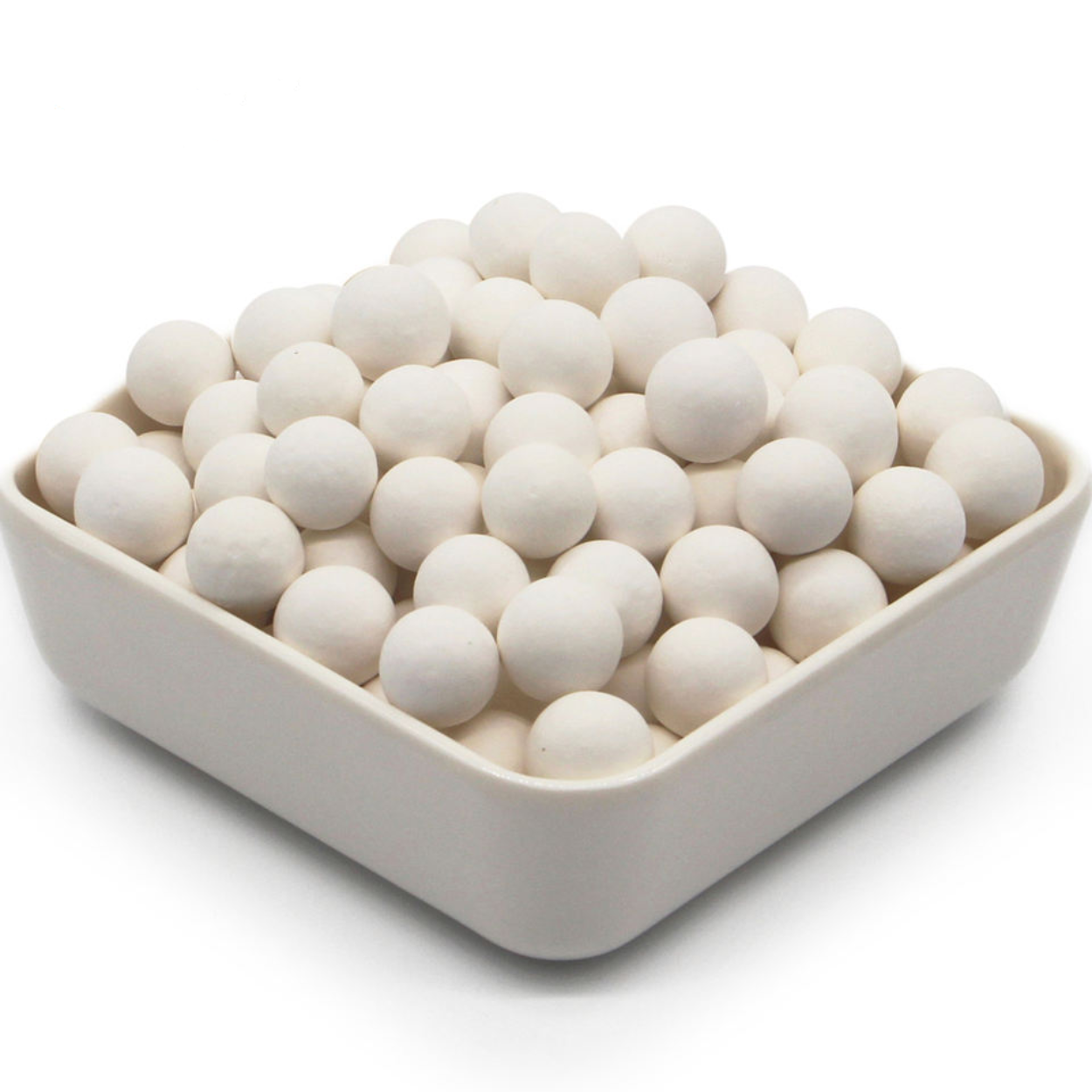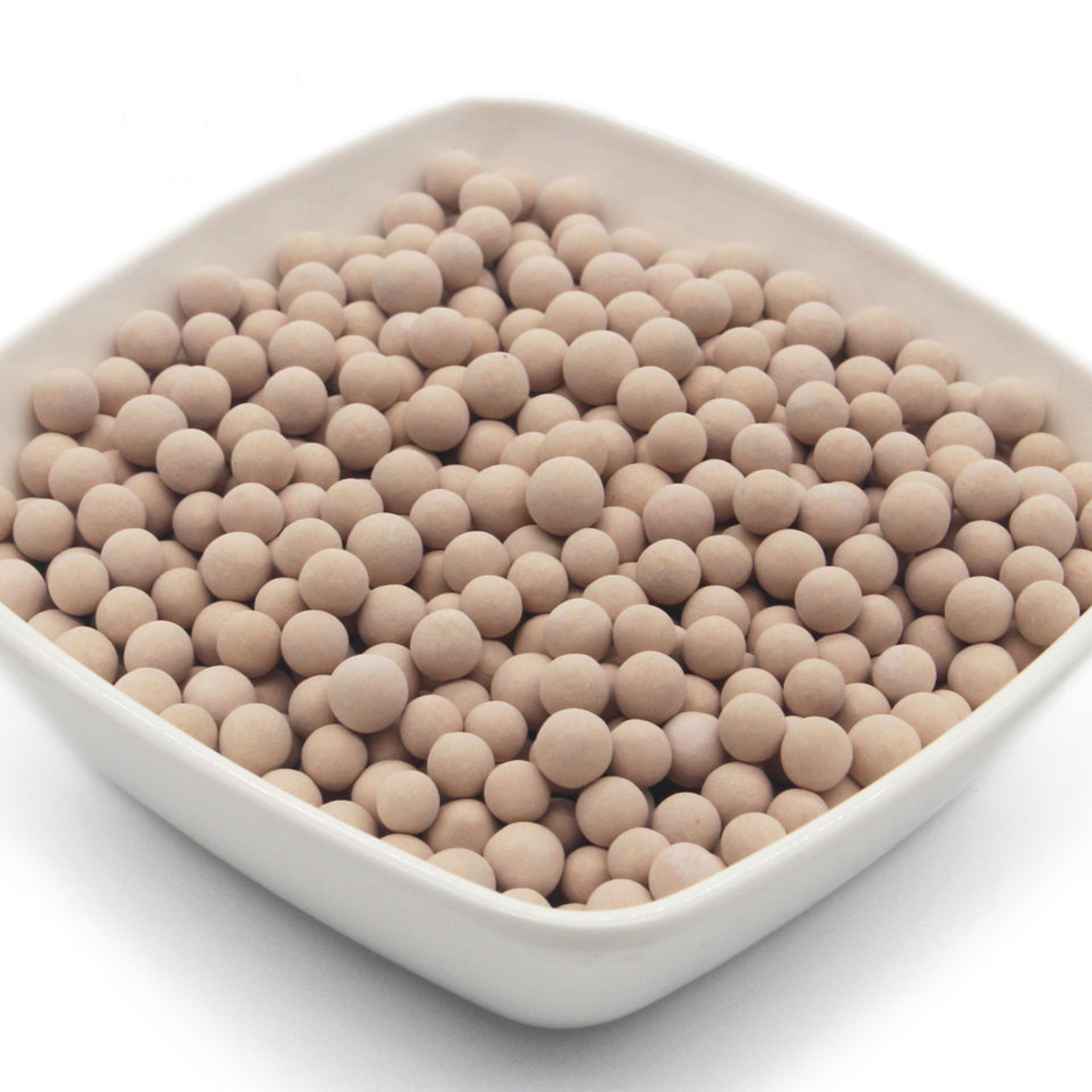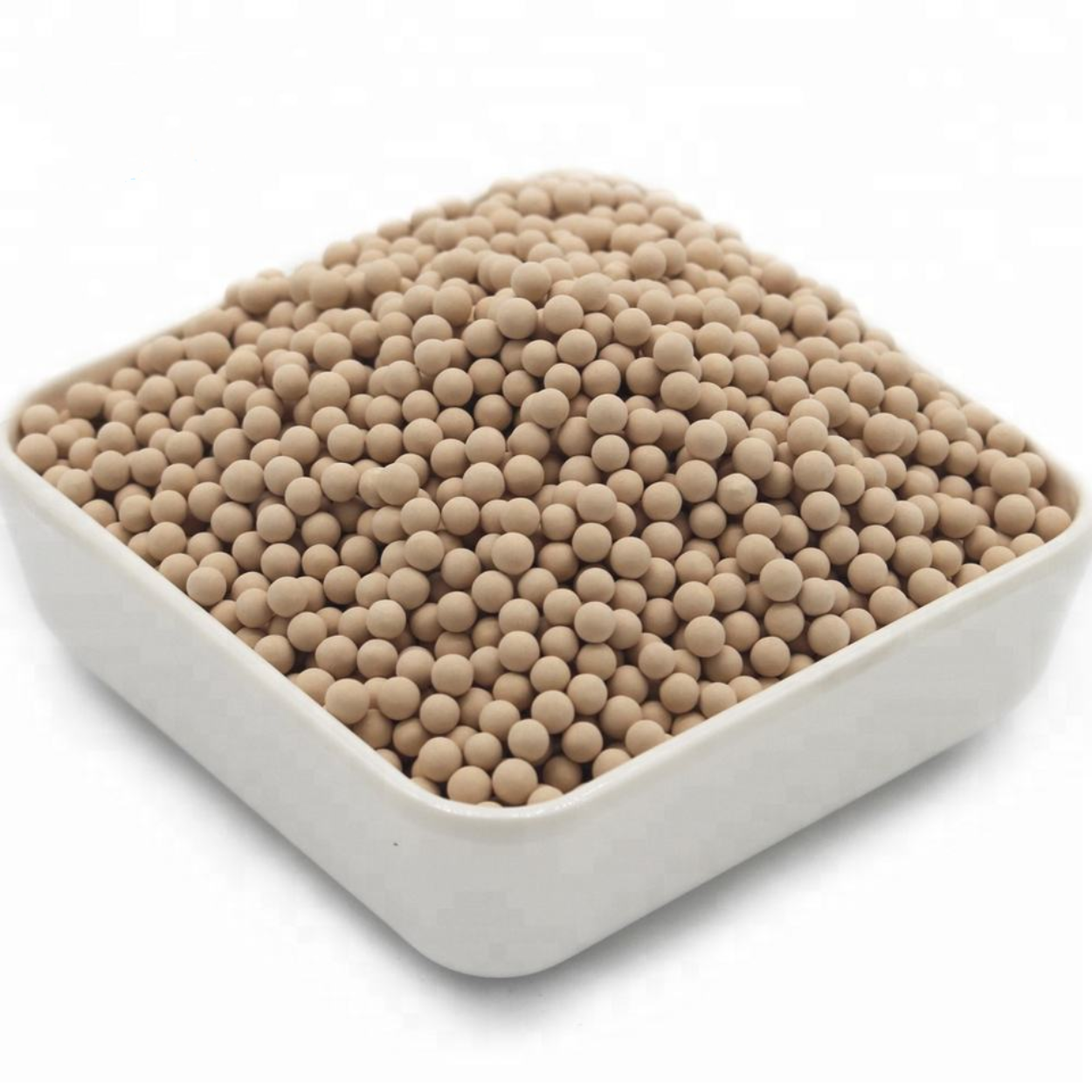
Manufacturer 4A vs 3A Molecular Sieves in LNG Dehydration
LNG dehydration mainly uses 4A molecular sieves for water and hydrocarbon removal, while 3A suits cases needing zero hydrocarbon adsorption.
Moisture in natural gas processing and transportation can cause issues such as pipeline corrosion, hydrate formation, and reduced calorific value. Therefore, deep drying adsorbent is crucial to ensure gas quality and safety. Among various technologies, 3A molecular sieve stands out as the ideal choice for achieving deep dehydration with a dew point below -70°C.
3A zeolite is a synthetic crystalline aluminosilicate with uniform micropores approximately 3Å (0.3 nm) in size. Its chemical formula is K₁₂[(AlO₂)₁₂(SiO₂)₁₂]·xH₂O. Produced via ion exchange, 3A sieve allows only water molecules (~2.8Å) to enter while excluding larger molecules like methane and ethane, making it ideal for natural gas dehydration.
Achieves ultra-low moisture levels with dew points below -70°C—far superior to silica gel or activated alumina.
Adsorbs only water, preserving valuable hydrocarbons and maximizing efficiency.
Tolerates acidic gases (CO₂, H₂S) without deactivation, offering long service life.
Regenerable at high temperatures (up to 250°C), with no chemical reaction with gas components.
Unlike glycol dehydration, 3A sieves requires no heating during adsorption, consumes less energy, and produces no wastewater.
A typical 3A molecular sieve dehydration system uses a fixed-bed adsorption setup with two or more towers:
Adsorption: Wet gas passes through a tower filled with 3A sieve, where water is selectively removed.
Regeneration: Once saturated, the tower is switched out and regenerated via heating.
Cooling: The regenerated tower is cooled and put back into operation.
This cycle ensures continuous gas drying with dew points below -70°C.
3A molecular sieve dehydration is widely used in:
LNG pretreatment
Natural gas pipeline drying
CNG refueling stations
Feed gas purification for petrochemicals
Offshore gas processing
Unconventional gas (shale gas, coalbed methane)
Key considerations for system design include:
Gas flow rate
Inlet water content
Operating pressure (typically 2–8 MPa)
Regeneration temperature (200–300°C)
Adsorption cycle (8–24 hours)
Experienced suppliers can offer customized solutions to optimize tower design and performance.
Regularly inspect inlet filters to avoid contamination
Control regeneration temperature and duration precisely
Monitor outlet dew point and replace exhausted sieve promptly
Refresh 5–10% of sieve every 3–5 years
Prevent oil and heavy hydrocarbons from entering the system
| Technology | 3A Molecular Sieve | Glycol Dehydration | Silica Gel / Alumina |
|---|---|---|---|
| Lowest Dew Point | < -70°C | -40 to -60°C | -60 to -70°C |
| Hydrocarbon Loss | Nearly Zero | Minor | Significant |
| Energy Use | Moderate | High | Moderate |
| Maintenance Cost | Moderate | Low | High |
| Application Size | Small to Medium | Large | Small to Medium |
| Environmental | Excellent | Moderate (waste) | Good |
For natural gas projects requiring ultra-deep dehydration (dew point < -70°C), 3A molecular sieve is the industry’s go-to solution due to its selective adsorption, stability, and operational efficiency. As gas quality standards and environmental regulations tighten, this technology is set to see broader adoption. Partnering with a reliable supplier and optimizing system design are key to long-term performance and cost-effectiveness.

LNG dehydration mainly uses 4A molecular sieves for water and hydrocarbon removal, while 3A suits cases needing zero hydrocarbon adsorption.

Achieve ultra-deep dehydration of cracked gas with 3A molecular sieves—remove water without ethylene/propylene loss, ensuring catalyst life and product purity.

Home Desiccant Activated Alumina for air compressor drying gas purification wholesale Email WhatsApp Product Inroduction: Desiccant Activated Alumina for air

Home Adsorbent Zeolite 13x Molecular Sieve for Removing Odor From LPG in air Freshener Plant Email WhatsApp Product Inroduction: Adsorbent Zeolite
As a leading molecular sieve manufacturer, we share the latest industry news and insights on adsorbents like molecular sieves, sieve powder, and activated alumina.

LNG dehydration mainly uses 4A molecular sieves for water and hydrocarbon removal, while 3A suits cases needing zero hydrocarbon adsorption.

Molecular sieves play an irreplaceable role due to its selective adsorption of molecules in petrochemicals, natural gas treatment, air separation, and environmental protection.

Choosing the right molecular sieve involves several factors, with pore size and polarity matching being the most critical.